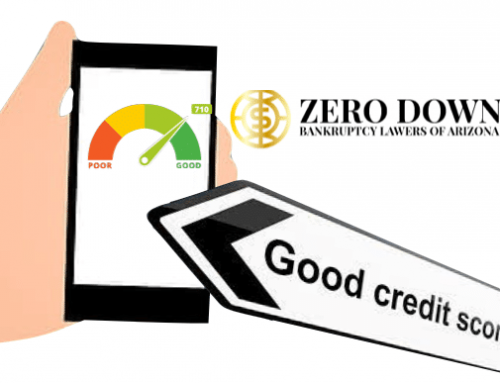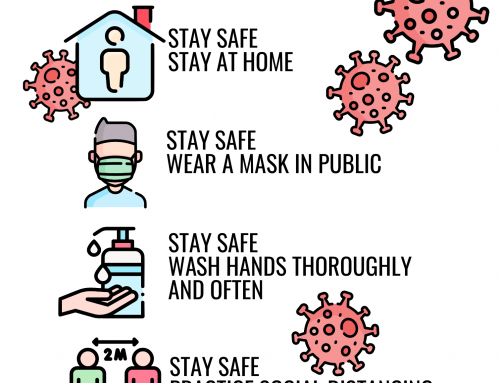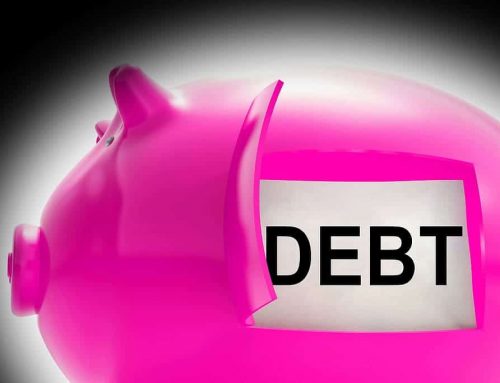 Some who are considering bankruptcy may hesitate to file not only because of the negative impact it has on credit, but because of the moral implications of filing bankruptcy. The tenets of Christianity should not prevent its followers from filing bankruptcy. In fact, bankruptcy was in part formulated based on teachings from the bible.
Some who are considering bankruptcy may hesitate to file not only because of the negative impact it has on credit, but because of the moral implications of filing bankruptcy. The tenets of Christianity should not prevent its followers from filing bankruptcy. In fact, bankruptcy was in part formulated based on teachings from the bible.How Bankruptcy Works
There are two main chapters of bankruptcy that individual (not business) filers use. The first is Chapter 7. Chapter 7 erases many unsecured debts, like credit cards, persona loans, and medical bills. Except for debts incurred immediately before the bankruptcy is filed, no repayment is required. The process lasts approximately 3-6 months. There are strict income and asset value requirements to qualify for Chapter 7.
Chapter 13, on the other hand, is a 3-5 year repayment plan. Some debts, like past-due mortgage payments, need to be paid in full in the plan. Depending on the filer’s income and other debts, unsecured debts may not need to be paid in full in the plan. Neither chapter will discharge debts like student loans and child support. Both chapters activate the Automatic Stay when filed, which prevents the filer’s creditors from garnishing their wages, foreclosing their home, etc.
Re-filing Time Restrictions
Bankruptcy has great benefits, but you can’t file (and obtain a discharge) repeatedly. If you have filed a Chapter 7 bankruptcy that was discharged, you must wait 8 years before filing another Chapter 7, and 4 years before filing a Chapter 13. For those who have had a Chapter 13 discharged, they must wait 2 years until filing another Chapter 13, and 6 years to file a Chapter 7.
How Bible Verses Relate to Bankruptcy Filing
 The Bible not only stated that charging interest on loans is immoral, but advocates for the release of debts after a certain time frame. Deuteronomy 15:1-2 reads, “At the end of every seven years you shall grant a release of debts. And this is the form of the release: Every creditor who has lent anything to his neighbor shall release it; he shall not require it of his neighbor or his brother, because it is called the LORD’s release.” Therefore, the legal time restrictions for filing bankruptcy in the United States are actually stricter than those set forth in the bible.
The Bible not only stated that charging interest on loans is immoral, but advocates for the release of debts after a certain time frame. Deuteronomy 15:1-2 reads, “At the end of every seven years you shall grant a release of debts. And this is the form of the release: Every creditor who has lent anything to his neighbor shall release it; he shall not require it of his neighbor or his brother, because it is called the LORD’s release.” Therefore, the legal time restrictions for filing bankruptcy in the United States are actually stricter than those set forth in the bible.Proverbs 22:7 states that a borrower is a slave to his lender. Deuteronomy 15:12-14 reads, “In the seventh year you shall let [the debtor] go free from you. And when you send him away free from you, you shall not let him go away empty-handed; but you shall supply him liberally from your flock.” While filing bankruptcy requires you to take credit counseling courses that may help you make better decisions in the future, the U.S. government doesn’t provide any gifts for completing a successful bankruptcy.
The bible does, however, send mixed signals about failing to repay debts. Psalms 37:21 states, “the wicked borrows and doesn’t pay back, the righteous is gracious and gives.” This implies it is immoral to file bankruptcy, but creditors are also morally bound to forgive debts. Ecclesiastes 5:5 states, “Better you should not vow, than vow and not pay.”
Considering and Consulting for Bankruptcy
If religion is your main hesitation in filing bankruptcy, prayer is a good way to help you decide whether or not to file. You could also consult with your priest or pastor, who can’t tell others about your decision whether or not to file. However, a religious counselor can only help you with the moral part of your decision. You should also speak to at least one experienced bankruptcy attorney before making your decision. You might find filing Chapter 13 more morally defensible than filing Chapter 7, but only qualify for Chapter 7. You may have no moral qualms with filing Chapter 7, but have too much income and only qualify for Chapter 13. You should consult both legal and religious experts in tandem to make the best decision for your situation.
We Can Help
When it comes to the legal and financial part of your decision, our office can help. We offer free consultations to help your decision-making process, along with affordable attorney’s fees and post-filing payment plan options. We strive to make bankruptcy an attainable process for anyone who needs it. If you’re ready to get started, don’t wait- call to schedule your free consultation today!
We are a Debt Relief Agency. We Help People File for Bankruptcy.









